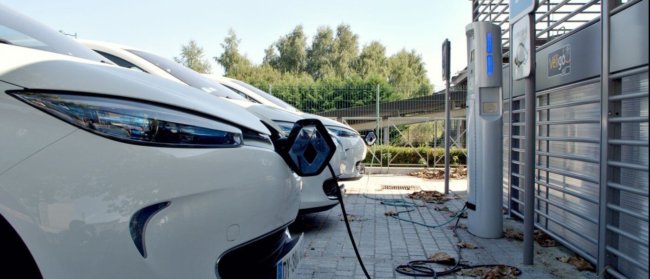
Electric cars become more affordable and more efficient, and their contribution to environmental protection is difficult to overestimate. Therefore, in order to accelerate the process of adaptation on the public roads, few countries have officially announced plans soon to completely ban the sale of non-electric vehicles, in fact it can lead to the end of the development of new petrol and diesel cars.
Perhaps the most eye-catching among the list of countries intending to impose a total ban on the production and sale of vehicles running on combustible fuels in the Netherlands. It is planned to start to sell only electric vehicles by 2025. And this is not the only step towards the development of the future transport system in this country. For example, here are also very interested in a high-speed system Hypeloop and other projects environmentally friendly public transport.
Through years of efforts to promote the adaptation of electric vehicles in Norway is now a leader in this direction. Therefore, it is unlikely for this country the achievement of the goal in the transition to a fully electric transport or transport with a minimum level of emissions of polluting substances into the atmosphere also by 2025 will be a problem.
After 2030 legal in India you can only buy an electric or hybrid car. The plan is quite ambitious, especially considering that to date the country can not boast a large number of charging stations in relation to the number of cars.
Germany is going to introduce a complete ban on manufacturing of internal combustion engines by 2030. Given the existence of a huge market of car production in this country, the transition to electric cars can have a positive impact on the automotive industry in a broader sense.
The Minister of environmental transformations Nicolas Hulot sees the possibility of complete cessation of sales of vehicles with internal combustion engine by 2040. However, in the capital of this country is such a noticeable transition is planned ten years earlier.
Following France about similar plans announced by the UK. Private and work vehicles running on petrol and diesel will no longer be sold in this country after 2040.
In spite of all these promising plans, the vast majority of countries have not yet decided whether it will be at least gradually to move away from traditional cars in favor of more environmentally friendly transport. At the same time, such as, for example, China, which confirmed its willingness to abandon the car with the internal combustion engine, but did not specify the time frame in which they plan to do.
In addition, the total impact from the prohibitions in the aforementioned countries may not be as significant as you would like. Just due to the large difference in the ratio of number of residents in these countries and the number of motorized equipment. Among today’s countries, only France and Norway are the twenty countries with the highest ratio of the number of population and vehicles, which it owns.
In addition, it should be noted that all these plans are exclusively related to ban non-electric vehicles. In other words, this means that these bans will not lead to a complete rejection of the use of petrol and diesel engines to a specified time. It only means that these countries will gradually begin to decline and withdraw from the road of such vehicles. For example, as a result of their aging.
By 2040 in some countries you can no longer buy cars on fuel fuel
Nikolai Khizhnyak